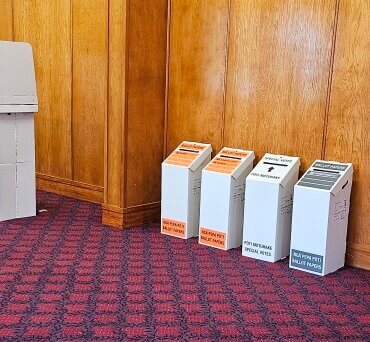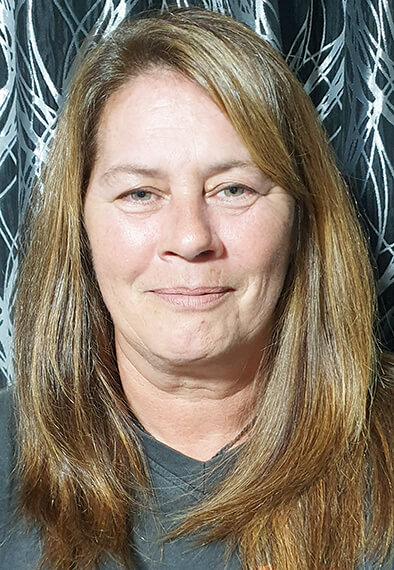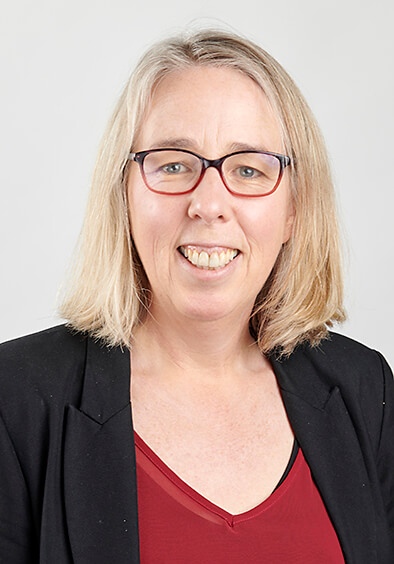
Election boxes
Kāwhia’s Gaylene Kanawa is about to hit the local body elections’ campaign trail with her colleagues at Waipa, Hamilton and Otorohanga councils to increase voter participation during the election period by offering more special voting opportunities.

Gaylene Kanawa
Not as a nominee, but as deputy electoral officer for Waikato District Council.
Kanawa has spent the last few weeks checking nominee details, including whether they were in the same ward as candidates.
If they were not, the candidates were asked to resubmit.
Nominations close tomorrow at noon.
Kanawa confessed to being concerned that both her home and work district could eventually call by-elections for the lack of enough candidates to fill every council and community board seat.
In Ōtorohanga, a by-election would cost around $15,000, while a Waikato by-election would cost around $30,000.
“Am I concerned? Absolutely,” she said on Monday. “We don’t have candidates for half of our positions as yet in Waikato. We are doing as much as we can to get people to stand. I am not sure why it’s so slow.”
One reason could be low base councillor salaries – $25,777 in Ōtorohanga, Waitomo $37,754, Waipā $37,884 and Waikato $49,742. The average New Zealand salary is $65,853.
From next week Kanawa will hit the streets to promote enrolling and bust some common myths surrounding enrolment, continuing a promotion phase that started a year ago.
“A common myth is people believe that they are not eligible to vote because they are renting,” Kanawa said.
Not the case.

Local Body elections
Kanawa will also join her counterparts at other councils in promoting enrolment on the electoral roll at special events around the region and, for the first time, Waikato District Council will install ballot boxes in high schools across the district to ensure that they are more accessible to the community.
Election papers will have candidates for district and regional council, community boards, where applicable, and include a referendum on whether to keep or remove Māori wards. In Waikato, district voting papers will also include candidate profiles for Te Kauwhata Licensing Trust.
Waikato district recorded a voter turnout of 32 per cent in the 2022 election, below the national average of 40 per cent. Kanawa has a theory on why.
“People don’t realise the council is local government, they don’t link the council to their rates, they don’t put two and two together in terms of what councils do,” she said.
“If you don’t vote, you can’t complain about rising rates,” she said.
She shared Kāwhia councillor Kit Jeffries’ concerns that a recent Ōtorohanga rate rise of $10.16 per cent could turn the township into a ghost town.
“It’s only people with significant income that could afford it,” she said. “Most of us work out of the district. That’s what we have to do.”
Kanawa’s concern is driven by a deep commitment to community.
She recently spoke to Kāwhia Community Board about the slow grind of the wheels of bureaucracy when it came to the development of the Kāwhia Fitness Trail proposed by GP John Burton five years ago.
Kanawa is also president of Pirongia Bowling Club where she is a standout competitor. She has represented the Aotearoa Māori team internationally and earned more than 35 centre titles.

Jo Gread
Kanawa chairs Kāwhia Education Trust too which governs Kāwhia Early Childhood Centre.
Waipā Governance manager Jo Gread ran a stand with the Electoral Office at the recent Leamington Domain Playground reopening and at selected places around the district.
In a media statement after The News went to press last week, she urged people not to leave it too late to get their nomination forms in.








